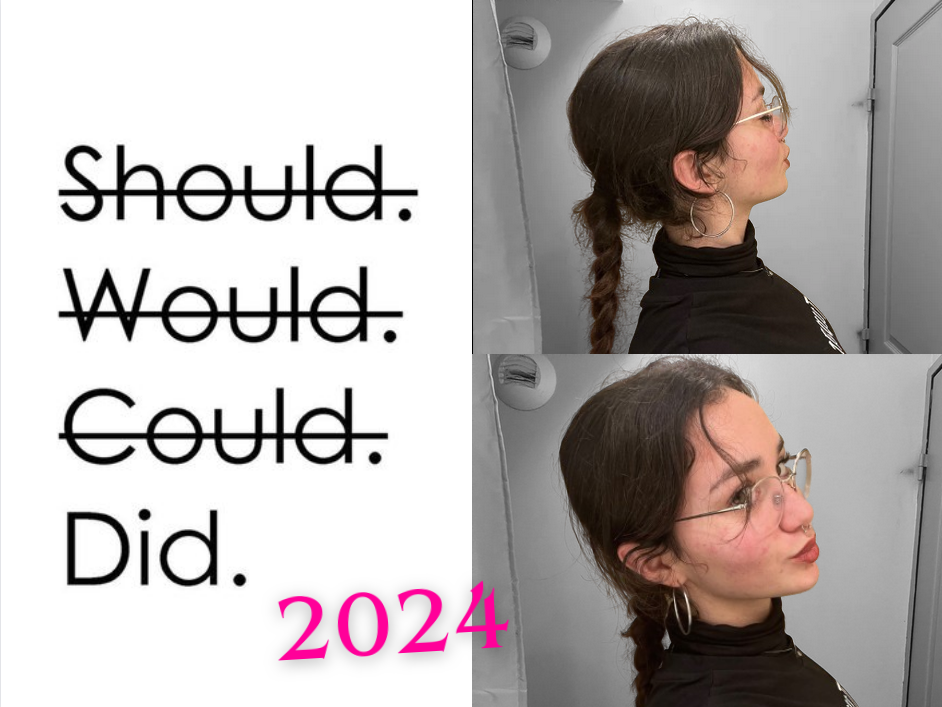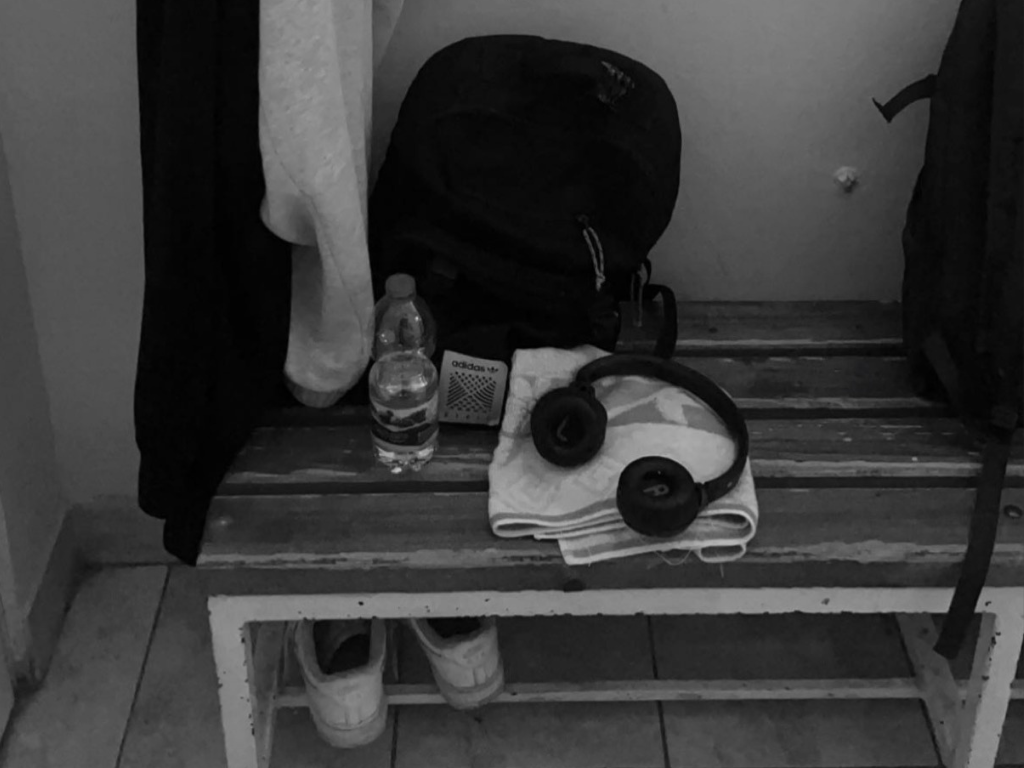How to be more confident
Self development
Practical tips!
I'm sure you've heard about these tips, but if you're still not using them, take this as a sign you should give them a try.
Also, I have to be honest, some of these are still an everyday practice even for me. Even though I'm a pretty confident person, here and there, I too have to check in with myself and see if something's off. It's a journey. You don't just wake up one day and "are confident". Nobody does! But thankfully, there are habits and behaviour changes that you can implement and keep in mind that help:)
So to keep it short:
1. put effort into your appearance
2. stop copying other people
3. when you think you're right - you are
4. do the hard things
5. fake it until you make it
1. put effort into your appearance
I've talked about this a little before, but you have to start taking care of how you look. Every day, you get out of the house and you're presenting yourself to the world. I'm not saying you have to wear or do things that don't resonate with you. Even if you feel the best in sweats, make sure the sweats match, make sure they're clean, make sure your hair is washed.. It's not even that much about how it looks, but rather how you will feel. At the end of the day, we're all different and "dressing up" will never mean the same thing for everyone. As long as you actually put the effort into yourself you will automatically feel better and that will translate to your self-perception, which then will translate to your confidence. Put in a few extra minutes in the morning into how you look. Put on some makeup if it makes you feel good, do your hair the way you like it.. That little extra effort in the morning will make you feel better for the rest of the day. And again, when you look good, you feel good, and therefore your self-esteem automatically goes up.
2. stop copying other people
There is nothing more degrading to your own self-image and your confidence than you constantly comparing yourself to other people and trying to blindly copy what they do. Getting inspiration from others, and learning from their behavior and actions is useful and helpful. However, doing it to the extent that you're putting others on a pedestal while not believing enough in yourself is detrimental to your mental state. You are your own person. Trying to be anyone else is useless. If you want to imitate someone, create an "alter ego" for yourself. This should be something like "the best version of yourself" with all the qualities that you wish to have and improvements you wish to work on. Let's say you're more of an introvert, but you want to meet more people and make new friends. In your head, create an alter ego of yourself that's confident and extroverted. Give it a name. Now, when you're in a social situation ask yourself: "What would [alter ego] do?" It can be a fun little game that can help you slowly change your own, but also other people's perception of you. This way, you're taking inspiration from your "alter ego" and trying to best meet their persona, but the "alter ego" is actually just an "improved" version of you. You're not trying to copy anyone else. Instead of telling your brain that "you're not enough" and that "you should be more like them", you're comparing yourself to the best possible version that you could be (or whatever your wanted version is). Celebrities do this as well. Beyonce, for example, has an alter ego for performing on stage, in front of thousands of people. Kobe Bryant had an alter ego that helped him get through the lowest points of his career. The problem with trying to be someone else and comparing yourself to an extreme extent is that you'll never beat them. They will always be the original. Furthermore, you'll never get where you're supposed to get if you're copying someone else's path. Get inspiration, but trust in yourself enough to do your own thing.
3. when you think you're right - you are
This is what my mom always tells me. In high school, I often used to think other people "knew better". Since they had "better grades", since they're "better at math" or "better at science" - they must know everything else better as well. HA! There were so many times when I wouldn't listen to myself because "if they don't know, how should I know??" which is so stupid and unnecessary. And when I would talk to my mom and tell her "what happened" she would always say: "Nela, when you think you are right - you are!" She wasn't just talking about me not answering a question right in class because I thought if nobody else raised their hand - "how should I know?".. She was talking about my intuition. She wasn't teaching me to go through life just thinking that I'm "always right". She was teaching me that I should trust myself. I should trust how I feel and validate it. Forget high school, this is utterly important in the real world! From making life-changing decisions to disagreeing with your coworker about how something should be done. To be completely honest, voice it even if you're wrong. This one goes together with the previous point - I would rather trust my intuition and think for myself and end up being wrong than blindly listen to others even if they are "correct". I say this because when you start believing others more than yourself, firstly you get insecure because you always think other people know better, but more so, there will be an important case when you will be in the right, but since you've been doubting yourself for so long and never gave yourself a chance, now you could be losing a big opportunity or experiencing a big real-life setback just because you're not listening to yourself. Your inner voice. Your inner intuition. I know it's hard to distinguish when you should listen to others a little more from when you should trust your own instincts, but this can be practised. If you're in school, an easy practice you can do for this is to start answering class questions the way you think it's right. Even if you're not, you'll learn something new (the correct answer), but more importantly, you'll start becoming more comfortable with doing your own thing and letting yourself "trust yourself" knowing you will be fine even if you turn out to be wrong. In the end, we're creatures that want to minimise our chances of failure, but sometimes it's better to fail while doing what you believe is right, than succeeding, but not feeling like it came from you. Not feeling like you "deserve to succeed" because if it was up to you - you'd do things differently.
4. do the hard things
Your brain will believe that you're confident when you convince it. There is no easier way than taking action to show it you can do stuff. You can do hard things. The sensation you feel after you accomplish a hard task automatically improves your confidence because it tells your brain that you're capable and that you should be proud. This is both physical and mental. You get an enormous feeling of satisfaction and confidence after managing to wake up early, after taking a cold shower, after running those miles you said you would run and after managing to put off your phone and read a book the way you said you would. That's also a big thing, you get confidence when showing up for yourself and doing everything you said you would do. Nothing good in life comes from "easy" or "comfortable". To build confidence and convince your brain that you are "worth it" (sounds harsh, but) you have to do the "hard things". Of course, as a human being, you are "worth it" in general, but that's not the advice you're looking for when wanting to improve your confidence. (I'll explain better after the last point.)
5. fake it until you make it
You have to act as if you're already confident. This doesn't mean become cocky. This means confidence is practiced. For example, if you're someone who rambles a lot when talking and "nervous talks", you have to start practising staying calm when speaking and being comfortable with not filling in every second of silence. This one is a personal example. I love talking and sharing everything, but sometimes I have to step back and let others "fill in the silence". I often do it, for instance, to not make others feel uncomfortable. I feel like if I'm the one taking the lead with "rambling" they won't feel the need to do so - which is questionable... Let others ramble, let others overshare, let others feel a little uncomfortable with you, but don't sacrifice your calmness and collectiveness. This is something we simply have to practice. You don't wake up one day and change on your own. You get there interaction by interaction. "Fake it til you make it" also means changing your viewpoint from thinking "Everyone is judging me, nobody here likes me" to "They're most probably not judging me as closely as I am, but even if they are, I'll be fine". It's normal if you don't believe it at first as your brain needs to adjust to the new way of thinking, but don't avoid making this change. 90% of life is confidence. And you are, in fact, in control. Confidence isn't assigned at birth. Every confident person you can think of worked their way to becoming that way, and so can you. No excuses.
Now, I talked about confidence and feeling "worth it". It would be best if you already knew your worth and were looking for advice on how to improve "the existing". However, since that's not always the case, I tried focusing on everyday practices that I know help with self-perception, and even more, don't only "mask" the confidence and boost the "ego", but rather help us rewire our brains and build our self-esteem.
It's an extremely interesting topic, if you ask me hehe
Feel free to give me feedback if anything is of help or has inspired you:)
And as always, thank you for reading, see you next week. <3
Read more..
How to make 2024 work for you
about goal setting
when things don't go as planned
about frustration and how to control it
planning vs action
is planning sometimes useless?
Contact me!
© 2023 – present Nela Čupić, Life of Nela. All rights reserved. All written text on this website is original, author’s (Nela Čupić) content.
No part of this blog may be reproduced, distributed, or transmitted in any form without prior written permission, except for brief quotations with appropriate credit and a link to the original content.


